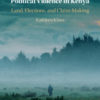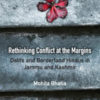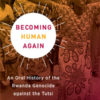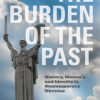Books

Fascism through History: Culture, Ideology, and Daily Life
By Patrick G. Zander. While fascism perhaps reached its peak in the regimes of Hitler and Mussolini, it continues to permeate governments today. This reference explores the history of fascism and how it has shaped daily life up to the present day. Perhaps the most notable example of fascism was Hitler’s Nazi Germany. Fascists aimed…
Read more
Doing Business with the Nazis: Britain’s Economic and Financial Relations with Germany 1931-39
By Neil Forbes. Britain’s financial and economic relations with Nazi Germany are assessed in this book. The structure and formulation of British policy, the interaction of government and business and the relationship between British business interests and Nazi Germany are looked at. A particular focus of the book is on the crisis of uncertainty felt…
Read more
When Victims Become Killers: Colonialism, Nativism, and the Genocide in Rwanda
By Mahmood Mamdani. “When we captured Kigali, we thought we would face criminals in the state; instead, we faced a criminal population.” So a political commissar in the Rwanda Patriotic Front reflected after the 1994 massacre of as many as one million Tutsis in Rwanda. Underlying his statement is the realization that, though ordered by…
Read more
Hitler and His Allies in World War Two
By Jonathan Adelman. In an area where in-depth studies of Hitler’s relations with Nazi Germany’s allies, and the failure of Nazi Germany to make more effective use of them during the war, are scant, this is a survey that looks at the Soviet Union, Japan, France, Italy, Spain, Romania and Hungary and their relationship to…
Read more
Political Violence in Kenya: Land, Elections, and Claim-Making
By Kathleen Klaus. Examining a key puzzle in the study of electoral violence, this study asks how elites organize violence and why ordinary citizens participate. While existing theories of electoral violence emphasize weak institutions, ethnic cleavages, and the strategic use of violence, few specify how the political incentives of elites interact with the interests of…
Read more
Genocide in the Carpathians: War, Social Breakdown, and Mass Violence, 1914-1945
By Raz Segal. Genocide in the Carpathians presents the history of Subcarpathian Rus’, a multiethnic and multireligious borderland in the heart of Europe. This society of Carpatho-Ruthenians, Jews, Magyars, and Roma disintegrated under pressure of state building in interwar Czechoslovakia and, during World War II, from the onslaught of the Hungarian occupation. Charges of “foreignness”…
Read more
Rethinking Conflict at the Margins: Dalits and Borderland Hindus in Jammu and Kashmir
By Mohita Bhatia. This book departs from the conventional academic narration of the conflict situation in Jammu and Kashmir and expands the debate by shifting the focus from Kashmir to Jammu region. Generally, it is the response of Muslim-majority Kashmir region – particularly its contestation of the hegemonic and assimilative temperament of the Indian state…
Read more
What Remains: The Post-Holocaust Archive in German Memory Culture
By Dora Osborne. With the passing of those who witnessed National Socialism and the Holocaust, the archive matters as never before. However, the material that remains for the work of remembering and commemorating this period of history is determined by both the bureaucratic excesses of the Nazi regime and the attempt to eradicate its victims…
Read more
Becoming Human Again: An Oral History of the Rwanda Genocide against the Tutsi
By Donald E. Miller, Lorna Touryan Miller and Arpi Misha Miller. Genocide involves significant death and trauma. Yet the enormous scope of genocide comes into view when one looks at the factors that lead to mass killing, the struggle for survival during genocide, and the ways survivors reconstruct their lives after the violence ends. Over a one…
Read more
The Burden of the Past: History, Memory, and Identity in Contemporary Ukraine
Edited by Anne Wylegala and Malgorzata Glowacka-Grajper. In a century marked by totalitarian regimes, genocide, mass migrations, and shifting borders, the concept of memory in Eastern Europe is often synonymous with notions of trauma. In Ukraine, memory mechanisms were disrupted by political systems seeking to repress and control the past in order to form new…
Read more
